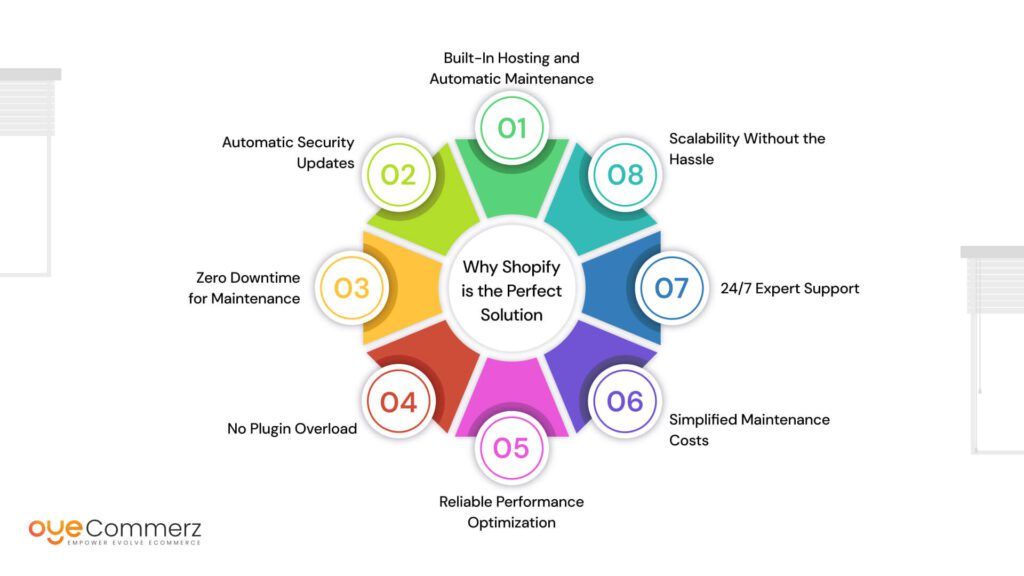In the dynamic landscape of digital commerce, choosing the optimal solution is vital for your brand’s prosperity. If you’re at the moment using WP and thinking about a migration to Shopify, you’re not the only one. Numerous businesses are switching to leverage Shopify’s powerful features, user-friendliness, and growth potential. This guide will walk you through the process of migrating from WordPress to Shopify smoothly, guaranteeing that you achieve your online retail potential.
Why Switch from WordPress to this platform?
Before diving into the migration procedure, it’s crucial to realize why this change can be helpful for your eCommerce business:
User-Friendly Interface: Shopify provides an user-friendly interface that simplifies store handling, allowing for non-technical users.
Scalability: As your company grows, Shopify can accommodate higher traffic and transactions without sacrificing speed.
Built-in Tools: Shopify provides integrated resources for SEO, analytics, payment processing, and more, eliminating the requirement for multiple plugins.
Advanced Safeguards: With Shopify, you get access to robust security measures that protect critical customer data.
Steps for a Effortless Migration
Migrating your digital shop from WP to Shopify includes key actions.
Here’s how to facilitate a hassle-free transition:
Outline Your Migration Approach
Kick-off by outlining your migration plan. Pinpoint which aspects of your current site you want to transfer, such as:
Item details
Customer information
Purchase logs
Articles
Choose the Best Migration Option
Based on your needs, choose a migration package that aligns with your eCommerce goals. Professional services delivers several options:
Entry-Level Plan: Ideal for small stores with fewer products.
Mid-Tier Plan: Recommended for mid-range businesses with moderate requirements.
Comprehensive Solution: Perfect for high-volume stores demanding custom customization.
Save Your Content
Prior to initiating the migration, guarantee that you have a complete backup of your WP site. This step is crucial in the event anything goes off track during the transfer.
Export Your Content from WP
Utilize plugins or alternative solutions to transfer key content from your WP site:
Items
Customers
Transactions
Articles
Upload Data into Shopify
When you have your data exported, employ Shopify’s built-in features or external apps to upload your data into your updated store. Confirm that all data is accurately structured and aligned.
Personalize Your Shopify Platform
After migrating information, adjust your Shopify platform’s design to match with your brand identity. Look into working with a developer if you need detailed customization.
Set Up Payment Gateways and Shipping Options
Arrange transaction methods and shipping settings in Shopify to ensure a seamless checkout experience for customers.
Adopt Search Engine Optimization Guidelines
To preserve your online visibility during the change:
Set up 301 redirects from previous URLs to new ones.
Refresh meta tags.
Enhance images and copy for search engines.
Review Your New Platform
Prior to publishing, thoroughly check your new platform. Look out for any discrepancies, transaction errors, or untransferred content.
Go Live Your Store
After everything is in place, it’s time to publish! Announce the update to your customers Shopify migration process and invite them to discover the enhanced features WordPress to Shopify migration of your Shopify store.
Post-Migration Guidance
Following launching your new store, regular support is important. Think about partnering with professionals who can assist with:
Site maintenance
Promotional campaigns
Enhancing features
Conclusion
Migrating from WordPress to Shopify can be a game-changing move for your digital business. By adopting this guide and utilizing experts like those offered by dedicated providers, you can achieve a smooth transition that boosts your business potential. Accept the shift and discover the full capabilities of Shopify today!
